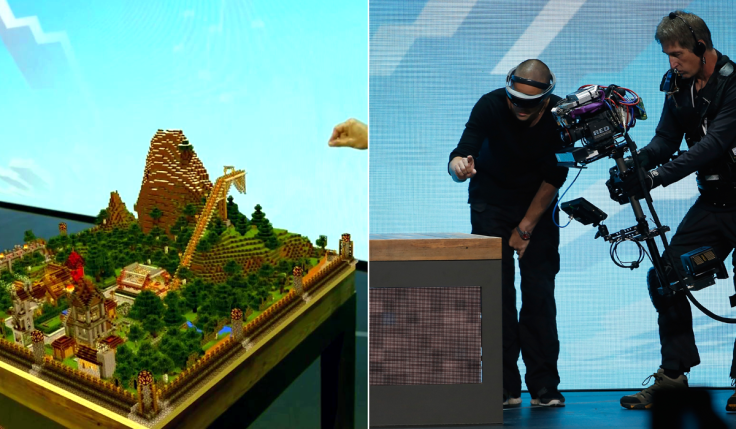VR vs AR: Virtual reality pioneers Oculus looking into augmented reality tech

Oculus is one of the major players in virtual reality (VR), having kick-started the surge in VR products which will be made available to the public over the next 12 months. Virtual reality alone may not be the future of tech however, with Oculus CEO Brendan Iribe revealing his company is researching augmented reality (AR).
Augmented reality and virtual reality are easily confused, and understandably so. Both utilise headsets, but VR takes users into entirely virtual spaces while AR lays virtual objects over real world environments.
Iribe believes that augmented reality is "just not compelling enough for mass market consumers" at present, but it is "something we're researching".
"We like to focus on consumer products and delivering an incredible consumer product," Iribe told Develop. "So much like Steve Jobs talked about a Mac one day in your hand with a radio attached to it in the 80s, and it took a while, I think that we'll be talking a lot about AR, and the potential of AR, and we'll see how long it takes for hardware overall to get there."
Sony's PlayStation VR, the HTC Vive, Oculus Rift and Samsung Gear VR are the major VR devices. Microsoft have made waves this year with their AR device HoloLens, impressing at E3 with their live Minecraft demo. Questions remain about the tech however. Google Glass was an AR device but was limited in what it could do and didn't prove popular following its launch last year. A successor is currently being worked on.
"With AR, where you see through the lens and you're actually expected to wear it during the day, all day, walking around, crossing the street; that is a very different form factor and use case than VR," Iribe continued, describing a device similar to the Glass.
"[In] VR it's more using it in your own home or office setting, more inside of rooms, less about running across the street wearing your VR glasses. That isn't the challenge VR has to overcome to be successful. Whereas with AR, that is the challenge. AR needs to get it to a point where it works as well as our glasses, and that it's our replacing our glasses or somehow sitting over top without it being too cyborg-like, so we're not too conscious of it."
What Iribe doesn't discuss is a device like the HoloLens, which appears to be for home and office settings – much like VR.
"I think that's one of the biggest challenges AR has, and VR just doesn't have that. You put on VR, I don't think people worry too much about what they look like in there, they're just having an incredible time and they're totally immersed. It's kind of where VR was stuck for decades. AR is still in that world."
For all the latest tech news follow us on Twitter @IBTimesUKTech.
© Copyright IBTimes 2025. All rights reserved.






















